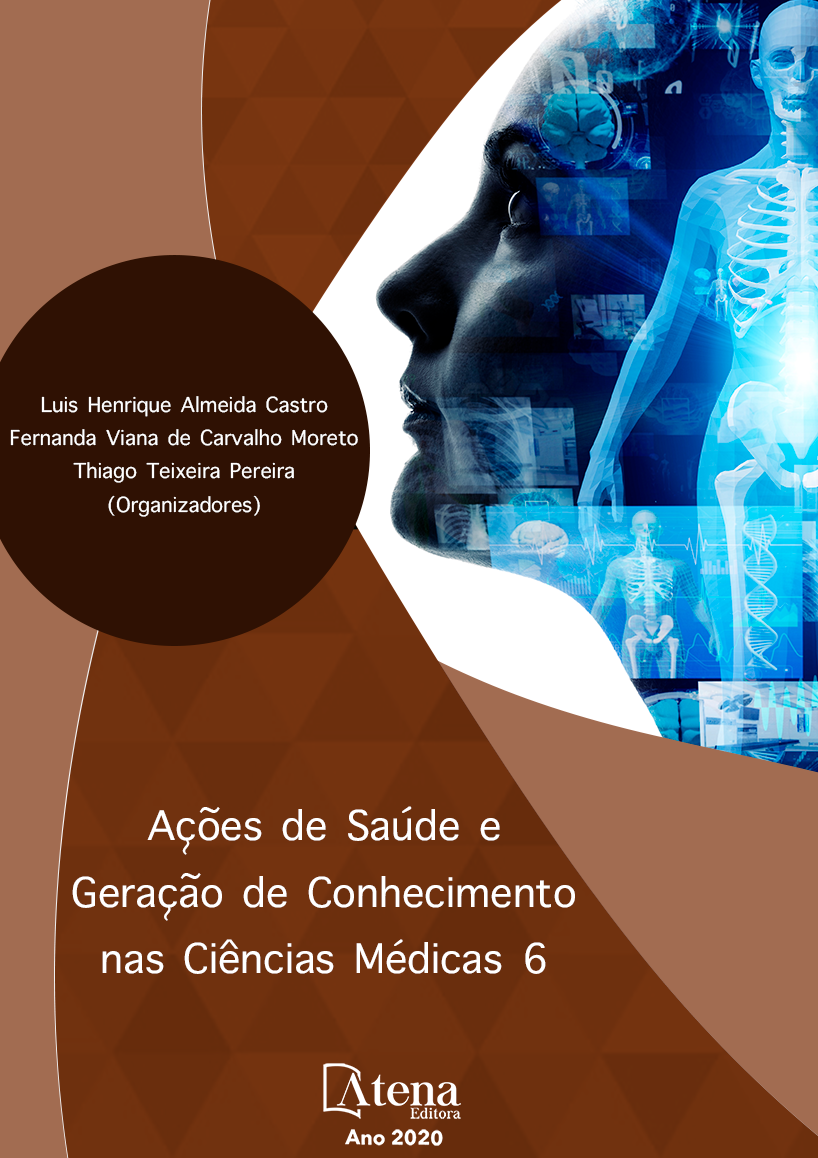
PACIENTE IDOSA CORONARIOPATA ACOMETIDA POR INFECÇÃO GRAVE PELO COVID-19 EM MUNICÍPIO NO INTERIOR DO ESTADO DO CEARÁ: UM RELATO DE CASO
Introdução: COVID-19 é o nome da doença causada pelo SARS-CoV2, patógeno de fácil disseminação e de expressivo potencial para causar doença de significativa gravidade, principalmente em indivíduos susceptíveis. Pacientes com doença coronariana apresentam maior chance de evoluírem com doença grave, apresentando letalidade estimada em 10,5%, pois o vírus tem importante impacto no sistema cardiovascular. Relato de Caso: Paciente do sexo feminino, 79 anos, hipertensa, diabética e dislipidêmica de longa data, além de aposição de dois stents coronarianos há dois anos. Buscou atendimento médico em UBS com queixa de febre há seis dias associada à início de dispneia. Ao exame físico, estava febril, taquidispneica e saturando 88% em ar ambiente. Encaminhada para internamento hospitalar e diagnosticada com COVID-19 confirmada pela coleta de swab de nasofaringe. Iniciada terapia farmacológica com Azitromicina, Oseltamivir e Ceftriaxona. Instituída oxigenioterapia com cateter nasal de O2 5l/min. Durante os sete dias de internamento hospitalar, permaneceu em isolamento respiratório e de contato. Evoluiu com melhora clínica, recebendo alta hospitalar. Discussão: Sabe-se que a COVID-19 pode se apresentar, a depender do estado imunológico do hospedeiro, em três estágios de evolução. O tratamento adequado precoce teria um papel fundamental no desfecho clínico. Azitromicina seria capaz de prevenir sintomas severos do trato respiratório em pacientes vítimas de infecção viral. Oseltamivir é indicado no intuito de tratar uma outra possível síndrome gripal, que pode vir associada com o coronavírus, provocada pelo influenza vírus. Ceftriaxona foi administrada empiricamente devido risco de uma possível infecção bacteriana secundária. Conclusão: A prescrição realizada, no presente caso, foi possivelmente eficaz para o não-agravamento da doença para o estágio de hiperinflamação sistêmica. Outrossim, como a paciente apresentava comorbidades graves, porém controladas, é possível sugerir que infecção foi capaz evoluir de forma favorável. Apesar do desfecho encontrado, não é possível comprovar causa e efeito, sendo necessária realização de mais estudos.
PACIENTE IDOSA CORONARIOPATA ACOMETIDA POR INFECÇÃO GRAVE PELO COVID-19 EM MUNICÍPIO NO INTERIOR DO ESTADO DO CEARÁ: UM RELATO DE CASO
-
DOI: 10.22533/at.ed.0432027074
-
Palavras-chave: covid-19; idosa; coronariopatia; grupo de risco
-
Keywords: covid-19; elderly; coronary disease; group of risk.
-
Abstract:
Introduction: COVID-19 is the name of the disease caused by the SARS-CoV2, a pathogen that is easily spread and has an expressive potential to induce a disease of significant severity, especially in susceptible individuals. Patients with coronary heart disease are more likely to develop a severe form of the disease with a 10,5% estimated lethality, as the virus has an important impact on the cardiovascular system. Case report: Female patient, 79 years old, hypertensive, diabetic and dyslipidemic for several years, and a two-year-old coronary disease with the position of two stents. Sought medical attention at a BHU complaining of fever for six days associated with the onset of dyspnea. On physical examination, she was feverish, tachydyspneic and saturating 88% in room air. Referred to hospital and diagnosed with covid-19, confirmed by the nasopharyngeal swab collection. Pharmacological therapy started with Azithromycin, Oseltamivir and Ceftriaxone. Oxygen therapy was instituted with a 5L/min O2 nasal catheter. During the seven days of hospitalization, she remained in respiratory and contact isolation. Evolved with clinical improvement, being discharged from the hospital. Discussion: It is known that COVID-19 can present itself, depending on the host`s immune status, in three states of evolution. Adequate early treatment would play a key role in the clinical outcome. Azithromycin would be able to prevent severe symptoms of the respiratory tract in patients suffering from viral infection. Oseltamivir is indicated in order to treat another possible flu syndrome, which may be associated with the coronavirus, caused by the influenza virus. Ceftriaxone was administered empirically due the risk of a possible secondary bacterial infection. Conclusion: The prescription performed, in the present case, was possibly effective for the non-worsening of the disease for the stage of systemic hyperinflammation. Furthermore, as the patient had severe but controlled comorbidities, it is possible to suggest that the infection was able to evolve favorably. Despite the outcome found, it is not possible to prove cause and effect, requiring further studies.
-
Número de páginas: 13
- Guilherme Marques Rodrigues
- José Clécio Barbosa Júnior
- Marcela Napoleão de Oliveira
- Talita Mendes Bezerra Ximenes
- Victor Rabelo Araújo Lélis
- José Clécio Barbosa
- Melissa Medeiros Soares
- Ismael Nobre de Sena Silva


